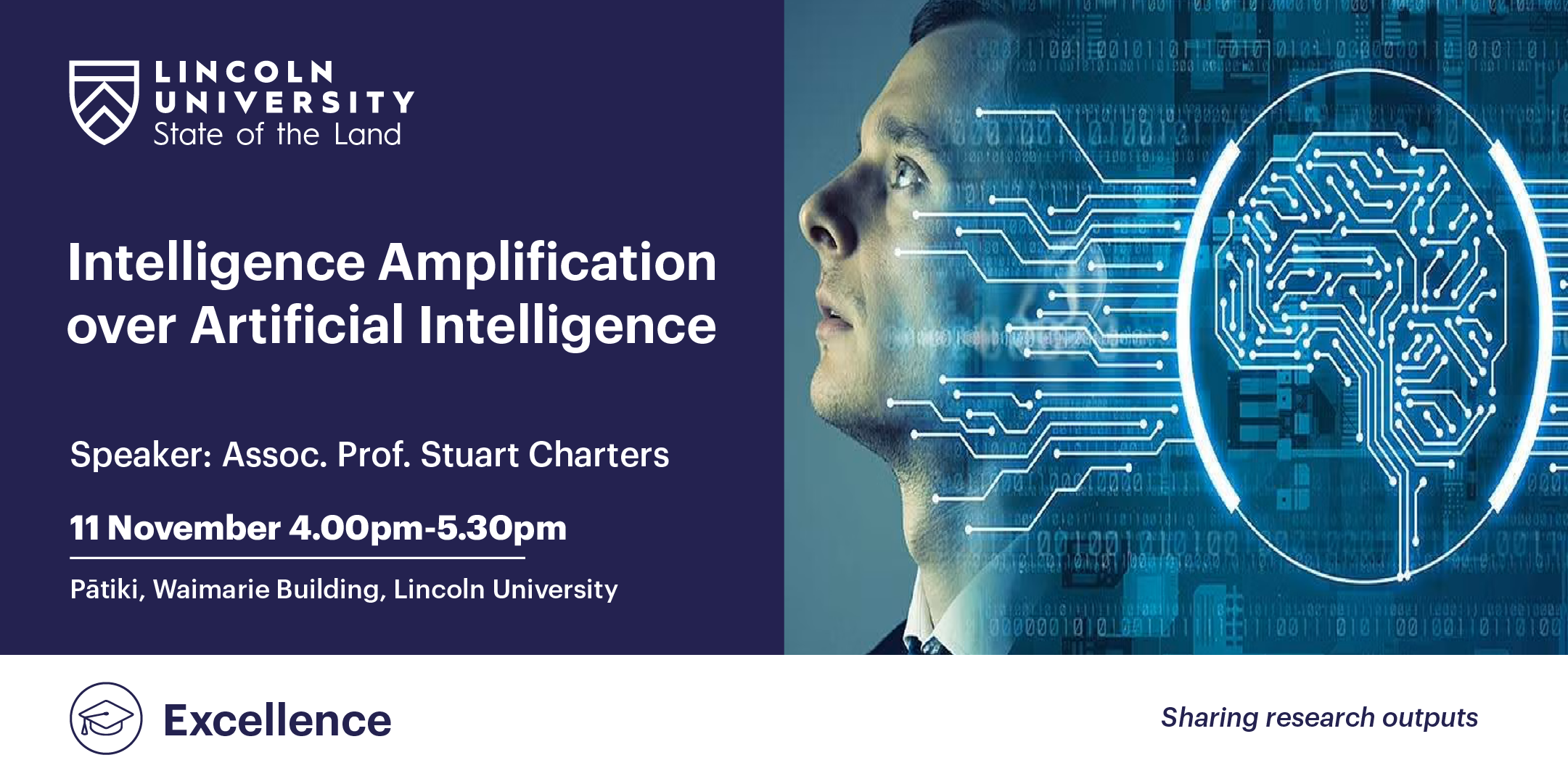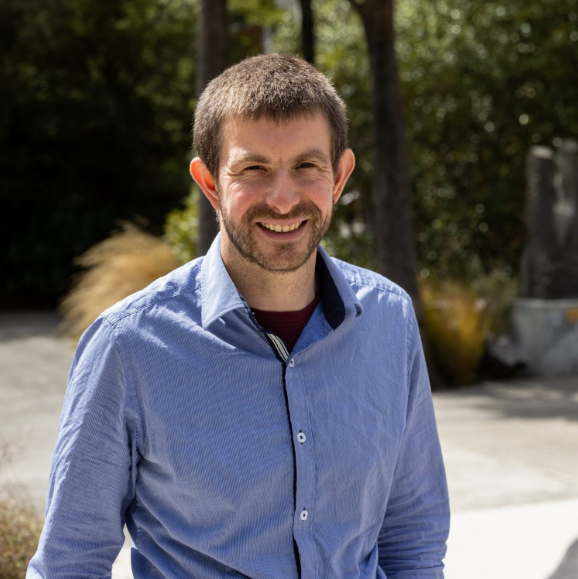Join us for the final event of 2025 in Te Whare Wānaka o Aoraki Lincoln University’s Excellence Series—an ongoing celebration of academic leadership and applied research that contributes to a thriving, sustainable Aotearoa New Zealand. These events highlight the work of leading scholars whose research is shaping both national and global conversations.
Computing has transformed almost every aspect of modern life, from how we work and communicate to how we analyse and solve complex problems. Yet as technology continues to evolve at an unprecedented pace, understanding the interplay between human and machine intelligence has never been more important.
In this talk, Assoc. Prof. Stuart Charters will explore the evolution of computers and computing and how these technologies can be harnessed to amplify human intelligence, drawing on his extensive research in visualization, high performance computing, and evidence-based software engineering. He will discuss the ways computing can enhance human decision-making, creativity, and problem-solving, and share insights from projects that bridge theory, practical application, and emerging technologies.
This event offers a unique opportunity to engage with cutting-edge research at the intersection of humans and machines, and to reflect on how advanced computing tools can support knowledge creation, innovation, and societal progress.
Tuesday 11 November
4.00pm-5.30pm
Patiki, Waimarie Building, Lincoln University
Timings
4.00 pm - Networking
4.15 pm - Welcome & introduction from LU Vice-Chancellor
4.20 pm - Presentation from Speaker
4.50 pm - Summary
5.00 pm - Networking and questions over drinks and nibbles
5.30pm - Event Ends
About Our Speaker
Associate Professor Stuart Charters
My research focus is on the intersection of technology, agriculture and ecology which we term, computational agroecology and also on the human aspects of computing, including Software Engineering, Visualisation and eResearch. I investigate how humans engage and interact with this technology. My research includes both the design and deployment of technology for deployment in the environment and on farm; presentation of data and information for consumption (mobile web and interactive visualisation, evidence based software engineering) and the processes around human engagement (eResearch and Evidence Based Software Engineering). The ability for people to effectively engage with technology and interpret data is essential for technology adoption and effective data based decision-making. My work in Evidence based Software Engineering improves the quality of research reporting, and provides methods and tools to allow research evidence to be assessed to understand the impact on practice or policy. I work collaboratively with colleagues in New Zealand, Australia and the UK. I was previously seconded to be the Director, SIGNAL ICT Graduate School, which focused on growing and developing tech professionals for New Zealand.
Click here to see more events


